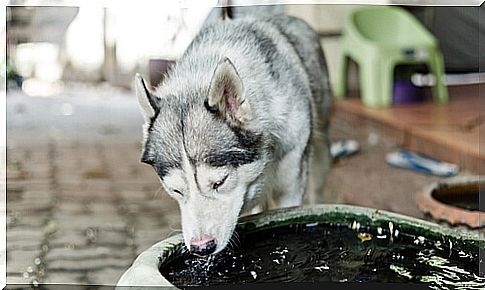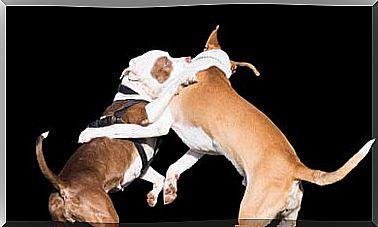Cystitis In Dogs

It is more common than you think. Cystitis affects dogs of all ages and is a pathology that must be treated as soon as possible. We will see what it consists of and the signs to take into account to take action without wasting time.
What is this disease?
Cystitis in dogs is an infection that occurs in the urinary bladder of the animal. It is quite frequent, as well as annoying.
The cause for which it appears is the presence of bacteria that enter through the intestines and pass through the urethra until they reach the bladder. There they cause an inflammation that in many occasions is accompanied by pain.
According to medical studies carried out in dogs with cystitis, the bacteria that are usually detected is Escherichia coli. Although the presence of other types of pathogens may occur. Cystitis can be acute or chronic and will need to be treated as soon as possible.
 For its part, as the female’s urethra is shorter than that of the male, the condition is more common in female dogs. Therefore, it is essential to maintain proper hygiene as a form of prevention.
For its part, as the female’s urethra is shorter than that of the male, the condition is more common in female dogs. Therefore, it is essential to maintain proper hygiene as a form of prevention.
Cystitis in dogs: symptoms
Although we know our pets, many times we consider a change in behavior as something minor or a transitory issue. But you have to be careful with it, because it may well be a symptom that reveals the presence of a disease or the beginning of it.
And the ideal is to detect the problem at the beginning so that the treatment is easier. That way, the infection will be less advanced.
Now, what are the signs to watch for in the case of cystitis?
- Behavior change is one of the symptoms. If we take into account that this type of infection causes discomfort, the way that pets manifest it is through unusual behaviors.
- Complaints or whining. We can detect that the animal wails when urinating. This will cause you to feel discomfort and pain.
- More frequent urination. The bladder stores urine for the kidneys. When the walls of it are inflamed by cystitis and it has less space, our dog will need to urinate more continuously, but less quantity. This is one of the most common signs. Signs of blood may appear many times. Therefore, if our pet urinates in unusual places or moments, we will not attribute it to a sudden whim, but to a symptomatology.
- Difficulty urinating. If you notice your dog spinning around and unable to urinate, be aware that this may be a problem. Either due to the infection itself or due to the obstruction of the urethra, it is essential to consult a veterinarian so that he is the one who detects the disease.
- Hyperactivity The discomfort caused by the disease, the need to urinate frequently or the inability to do so, make the animal more active than usual.
- Drink more than usual. If this behavior is accompanied by any of the above, it is a red flag to consider. It may also be that the problem is affecting the kidneys.
Treatment
It is important to have observed the symptoms and behaviors of the dog well to transmit them to the veterinarian.
The diagnosis and the way to treat your pet will depend on the criteria and the situation. But most likely you will perform a urinalysis. This is done to accurately detect the problem and assess the cause and its condition.
An ultrasound, x-ray, etc. may also be appropriate.
The treatment of cystitis in dogs is usually based on the administration of antibiotics prescribed by the veterinarian. Its correct follow-up is important for the total recovery of the pet.

It is ideal to control that the dog drinks enough water. This will help the recovery to be complete.
Is it possible to prevent cystitis?
There are always habits that favor disease prevention. In this case, drinking enough water is beneficial to avoid dehydration and the possible growth of bacteria.
Proper hygiene and healthy eating are also very important. In addition, you have to keep the vaccination schedule up to date and a regular consultation with the trusted veterinarian.
All these behaviors are important to prevent, not only the appearance of cystitis, but of many other conditions.









